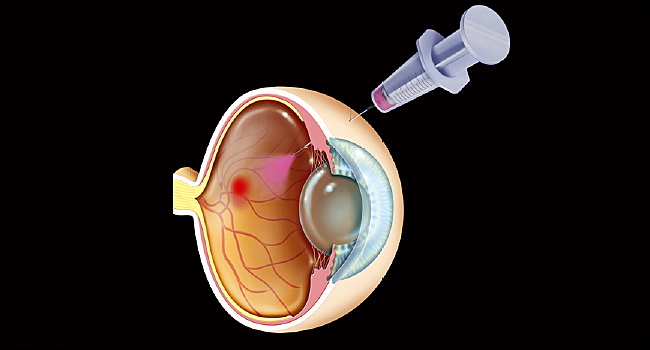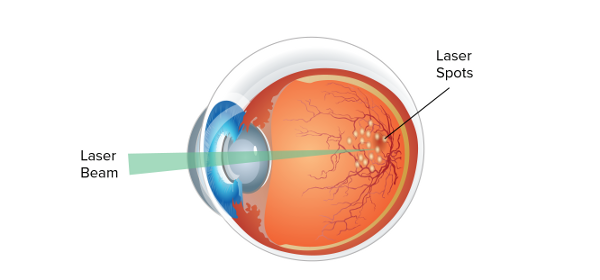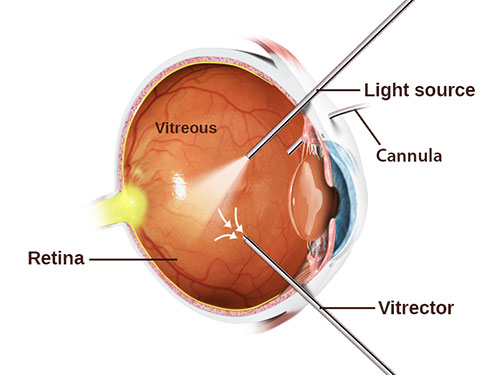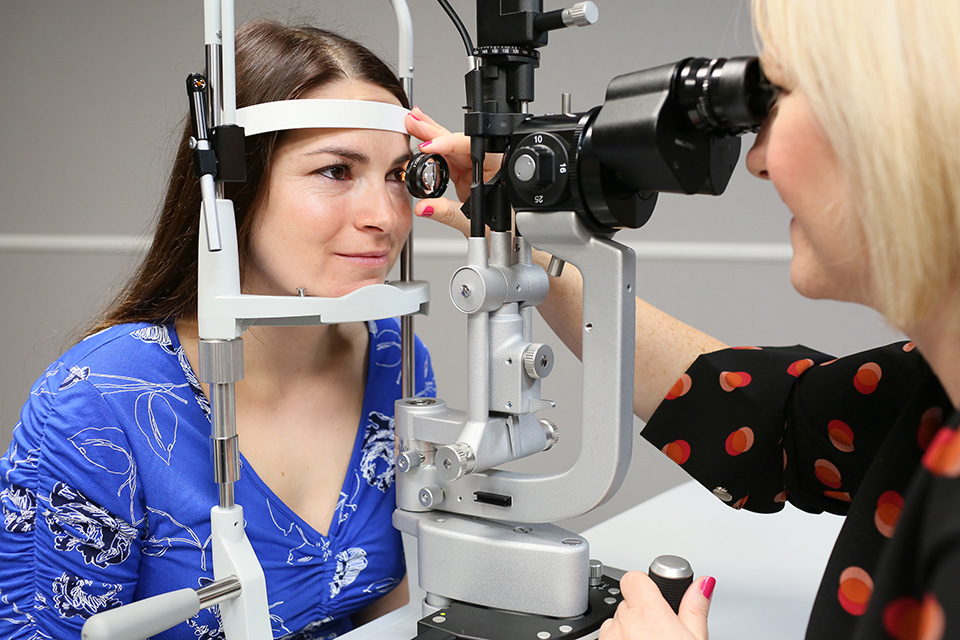Can Diabetes affect your eyes?
Yes, Diabetes can affect the eyes. Diabetes can cause eye conditions such as Diabetic Retinopathy, Diabetic Macular Oedema, Cataract and Glaucoma. These eye conditions can cause poor vision and even blindness if left untreated.
Diabetic Retinopathy is the most common cause of vision loss among diabetic patients.
Diabetic retinopathy (DR)
This eye condition is caused by high blood sugar level due to diabetes.
There are 2 types of DR:
| Non Proliferative Diabetic Retinopathy (NPDR) | Proliferative Diabetic Retinopathy (PDR) |
| Early stage of the DR | Late stage of DR |
In the early stages of DR, patients do not usually experience symptoms. Patients usually notice the symptoms only during the advanced stage of this eye condition.
PDR is more severe and vision threatening as it involves new growth of blood vessels. New blood vessels are prone to leakage and can leak into the vitreous (clear gel like substance). Furthermore, these new blood vessels can cause scar tissues to form, which can impair your vision and even cause retina (a thin layer on the back part of the eye) to be detached.

Symptoms of DR
- Blurred Vision
- Patches / Steaks in the vision
- Dark / Empty spots in the center of vision
- Sudden & total loss of vision
Mild NPDR usually does not affect the vision much. However if your blood sugar level is not properly controlled, you may experience fluctuating vision . Patients with diabetes often come to us complaining that their glasses is no longer clear. After prescribing a new pair of glasses for them, when they come and collect their glasses in a week or 2, they often complain that it’s not as clear during testing. Upon rechecking, their prescription has changed again.

Treatment for DR
DR is irreversible. If left untreated, it can lead to blindness.
Unfortunately, there is no cure for DR. However, early treatment can prevent further damage and prevent blindness. The earlier DR is being treated, the more vision can be preserved.
Non Proliferative Diabetic Retinopathy (NPDR)
- During the early stages of DR, regular monitoring will be done depending on the severity.
| Severity of NPDR | Frequency of regular dilated eye examination by an eye specialist |
| Mild | Once a year |
| Moderate | Once every 6month |
| Severe | Once every 2-4months. |
Proliferative Diabetic Retinopathy (PDR)

Eye injections
- This is to prevent the growth of new blood vessels at the back part of the eye

Laser Treatment
- This is to reduce the growth of new blood vessels, seal off leakages on the back part of the eye

Surgery (Vitrectomy)
- Removal of vitreous (gel-like substance) in the eye
- This is usually done when there is bleeding into the vitreous or retina (a layer on the back part of the eye) is detached.
These treatments can stop the vision from getting worse. However, it will not undo the damages done to your vision. Hence, it is important for diabetic patients to undergo annual eye examinations to be able to pick up the abnormalities as early as possible.
How to slow down or prevent DR?
Have an dilated eye examination by an eye specialist at least once a year
- Dilated eye examination: Eye drops instilled to dilate your pupils to examine the health of the back part of your eyes.
- There are little to no symptoms during the early stages of Diabetic Retinopathy. Having regular eye examination allows the eye specialist to look out for any changes in the eyes before symptoms appear.
- The frequency of the regular eye examination depends on the severity of DR.
It is also important to keep your blood sugar level, cholesterol level and blood pressure within norms and lead a healthy lifestyle.

Diabetic eye disease screening @ Evershine Optical
Optometrist at Evershine Optical will conduct a comprehensive eye examination if you are a diabetic patient or you are a non-diabetic patient but we do see signs of of Diabetic Retinopathy.
Before conducting the eye examination, we will ask a series of questions, such as when was your last health and eye examination.
The comprehensive eye examination includes:
- Refraction test
- Check power of the eye
- Eye Health check
- Assess the health of the front and back part of the eyes
- Fundus Photography
- Take an image of the back part of the eye
- Amsler Grid Test
- Detect if there are any macular (area on retina whereby vision is sharpest) abnormalities, eg, macular oedema
- Intraocular Pressure
- Examine the pressure of the eye
After the eye check, we will advise you accordingly:
| Patients who are aware that they have diabetes | Mild NPDR We will advise you to have a dilated eye examination by an eye specialist at least once a year Moderate NPDR We will advise you to have a dilated eye examination by an eye specialist at least once every 6 months Severe NPDR We will advise you to have a dilated eye examination by an eye specialist at least once every 2-4months. For NPDR, we will refer you to an eye specialist for treatment if macular edema is detected Macular edema: Swelling at the center of retina (layer on the back part of the eye) PDR Refer to an eye specialist for treatment |
| Patients who are unsure if they have diabetes – Have not done a health check | Other than advising you to have regular eye examination as stated above, we will advise you have a health check, especially to check on the blood sugar level |
DR encountered @ Evershine Optical
At Evershine Optical, we do encounter customers who are diabetic. Just this month, a diabetic customer came in to make a new pair of glasses. Before conducting the eye check, we asked about his previous eye examination with an eye specialist. He told us he had never visited an eye specialist before. During the eye health check, we found out that he have Diabetic Retinopathy. We educated him on this eye condition and advised him to see an eye specialist and have a dilated eye examination with the eye specialist at least once a year. He took our advice and will be visiting an eye specialist next month.
Regular eye examination are not just for diabetic patients. For people aged 40 and above, it is recommended to have regular eye checks annually. Contact Evershine Optical to book an appointment for your eye check!
References
- My Patient Has Diabetic Retinopathy…Now What? 2019. Review of Optometry.
- Reconsider Your Approach to Diabetic Retinopathy. 2020. Review of Optometry.

